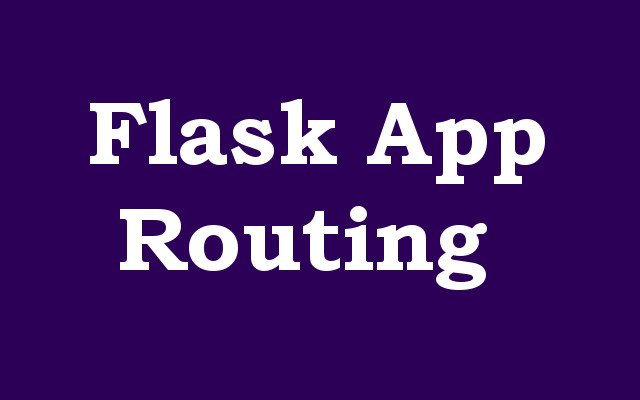In this lesson we want to learn about Flask App Routing, Flask is micro web framework in Python that allows you to build web applications easily. In Flask, you can define the different URLs that your application will handle (known as “routes”) and the functions that will be called when a user accesses those routes. This process is known as “routing.”
This is an example of how you can define routes in Flask application:
|
1 2 3 4 5 6 7 8 9 10 11 12 13 14 |
from flask import Flask, render_template app = Flask(__name__) @app.route("/") def index(): return "Hello, World!" @app.route("/home") def home(): return render_template("home.html") if __name__ == "__main__": app.run() |
In this example the index function will be called when user visits the root URL (“/”) and home function will be called when user visits the “/home” URL, and render_template function is used to return template file (in this case home.html) to the user.
You can define as many routes as you need in a Flask application, and you can use dynamic URL parameters to pass data between routes. For example:
|
1 2 3 |
@app.route("/user/<username>") def show_user(username): return "User: " + username |
In this example, the show_user function will be called when user visits a URL like “/user/john”. The username parameter will be passed to the function and can be used to retrieve information about the user.
What is the Benefit of Flask ?
Flask has several benefits, including:
- Lightweight and Minimal: Flask has minimal codebase and is easy to learn and it makes it good choice for small to medium sized projects.
- Flexibility: Flask allows you to build applications with different features, such as templates, databases and forms and it makes it highly flexible framework.
- Pythonic: Flask was written in Python and the framework follows the philosophy of making it easy to build applications in Pythonic way.
- Large Community: Flask has large and active community of developers, making it easy to find help and resources online.
- Easy to Get Started: Flask is easy to set up and has a straightforward process for creating and running web application.
- Scalable: Flask can be used for both small and large projects and it is designed to be easily scalable as your application grows.
- Extension Support: Flask has large library of extensions and it makes it easy to add functionality to your application without having to write all the code yourself.
- Debugging: Flask provides helpful debugger that makes it easy to find and fix bugs in your application.
In summary Flask is lightweight and flexible framework that is easy to get started with and offers a lot of features for building web applications. It’s well suited for small to medium sized projects and has a large and active community of developers.
